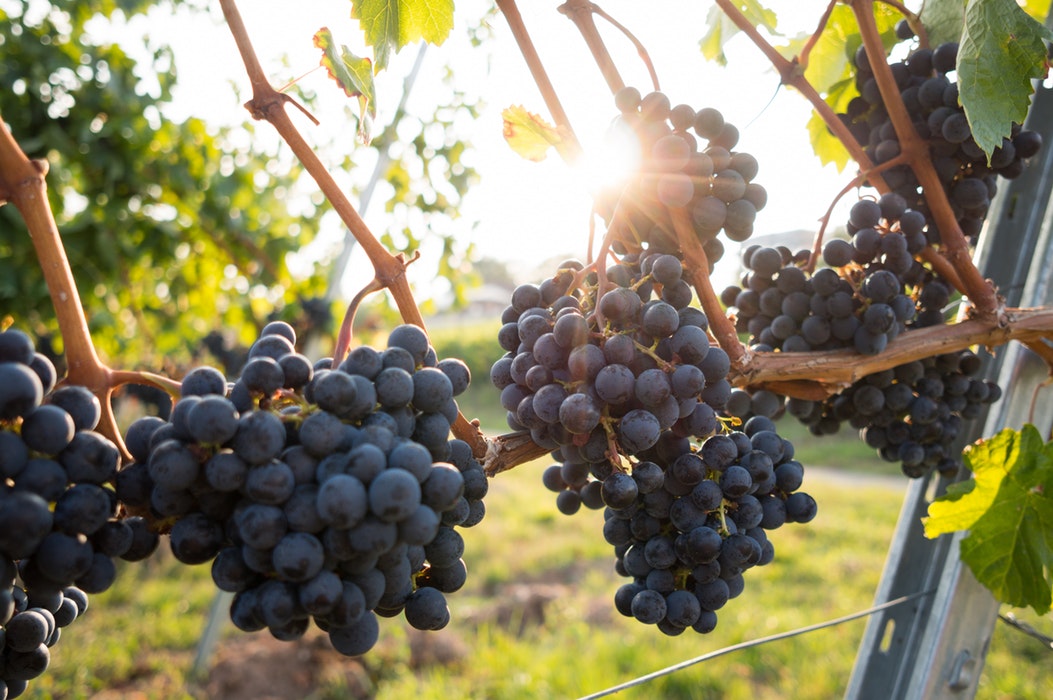
The Differences Between Organic, Biodynamic and Natural Wine
One of the elements of wine that distinguishes it from the majority of products you might find in a supermarket, is what the French call 'terroir'. Simply put, the concept of terroir is that a wine reflects its place, that the grapes grown in a certain area on certain soils, with a certain amount of sunlight, exposure to the elements and so on will create a different growing environment, and that these elements contribute to the final flavour and style of the wine. It's hard to argue with, simply because of how drastically different wines do taste around the world even made from the same grape varieties, using the same wine-making techniques! With the popularity and high prices of Burgundy, wine-makers around the world are constantly trying to adapt their Pinot Noir and Chardonnay wines closer to this model, but most are noticeably different from the real thing. Why? Terroir.
One element that's overlooked is our own contribution to the wine. Wine doesn't make itself after all, and even the way that the vineyards and managed will change the growing environment, therefore changing the flavour of the final wine. There are many different ways to approach viticulture, the farming of a vineyard, and many are even regulated. Have you ever heard of organic wine before? Biodynamic? How about natural wine? These are all terms that give an indication of how a vineyard has been managed, an increasingly important consideration in our health and environmentally conscious societies. However, they're not all regulated and some are more philosophical than anything else, with debates constantly circling around the wine community, discussing the pros and cons of each. To make life easier, we're going to lay out what each means and you can decide yourself!
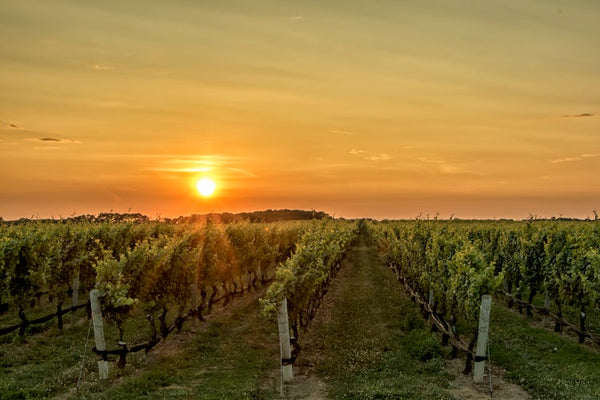
Organic Wine
What is organic wine? Simply put, the whole premise of organic wine is to produce wine that has less reliance on pesticides, herbicides and other chemical intervention in the vineyard. The idea is that, given the right care and attention, vines are perfectly capable of regulating themselves and that the end product should be 'purer' whilst the vineyard will be healthier as will the workers responsible for taking care of it. However, organic wine is regulated differently in every single country, usually by different institutions and as a result, there's no single 'rule book'. However, there are some similarities regardless of where organic viticulture is practiced:
- No chemically synthesised fungicides, insecticides, pesticides or weedkillers may be used in the vineyards, as well as no genetically modified organisms
- A vineyard cannot be considered organic until it has been regularly inspected and can prove that it has been free of the above substances for a minimum of 3 years
- So2 (sulphur dioxide) levels are usually limited to 100mg/l in most organic wines, which is about half the amount permitted for non-organic wine. However, that doesn't mean that an organic wine will have less sulphur dioxide than a non-organic wine, just that the ceiling is lower. It's also worth mentioning that in the USA, an organic wine means that no additional So2 is permitted at all, making it more akin to a natural wine, which we'll discuss later.
- If a wine is made from grapes produced in an certified organic vineyard, there will be a label, usually on the back, stating this. This also differs from country to country but will usually be obvious.
So, what are the pros and cons of organic viticulture?
Pros of Organic Wine Production
- Vineyards managed via organic viticulture and healthier and more vibrant. The wealth of a vineyard is in its soil and with less chemical deposits building up over time, this helps keep the vineyard healthy for the long term.
- Vineyard workers are less exposed to potentially harmful chemicals when working in an organic vineyard
- Organic viticulture means spending a great deal of time in the vineyard, managing the vines more carefully. As a result, the quality of grapes at harvest are usually very high, assuming no particularly difficult weather conditions!
Cons of Organic Wine Production
- The cost of organic viticulture is usually higher than most conventionally managed vineyards, typically making the wines more expensive as a result
- Due to the lack of protective sprays, extremely poor weather and unexpected fungal diseases or pests can badly damage a crop for the year. This is why warm, dry regions tend to have more organic viticulture and why wet, colder regions often can't take the risk!
- The certification process can be costly, so many smaller producers manage their vineyards in an organic process but won't be able to use the symbols on the labels to indicate this.
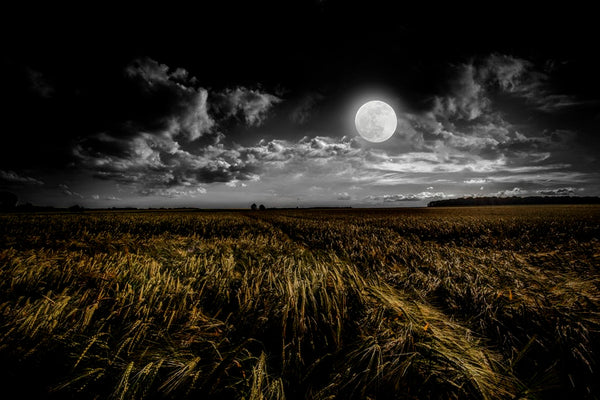
Biodynamic Wine
What is biodynamic wine? It's possible to think of biodynamic wine as an extension of organic wine, with a few extra bells and whistles. The premise of biodynamic wine is linked to the philosophies of Rudolph Steiner, an Austrian philosopher of the 1920s who linked science and spirituality together, viewing it as a complete understanding of the natural world. In viticultural terms, this means viewing a vineyard as a single living organism, rather than something to be molded or shaped. So, all the applications that apply to organic viticulture are true, but the following stipulations are demanded and inspected by the Demeter organisation:
- An estate must adhere to the Demeter Farm Standard procedure for a minimum of 3 years, or one year if already certified organic, which includes all organic viticulture requirements but goes much further.
- Biodynamic preparations must be used in the vineyard in place of traditional fertilisers. There are 9 in total, and each has specific instructions for preparation and application
- Whilst not essential, most biodynamic producers follow the Biodynamic Calendar. The premise of this is that the relative positions of the moon makes a difference in how a wine tastes, as well as dictating ideal days for planting/pruning/harvesting etc.
So, what are the pros and cons of biodynamic viticulture?
Pros of Biodynamic Wine Production
- The entire premise of biodynamic viticulture is to consider and find the perfect balance of a vineyard, with a particular focus on the health of vineyard soils. As a result, vineyards that have been following biodynamic viticulture for some time seem to find a maintainable rhythm in their growing cycles and grape yields at harvest.
- The consideration of the vineyard as a single living organism means new insects and animals are introduced to find the right balance. Sheep are commonly seen to eat the cover crops that would compete with grapes, natural predators are introduced to eat potentially harmful insects and the vineyards are alive and vibrant, often even extending to grow other crops.
- Vines managed via biodynamic viticulture are amongst the most carefully tended in the world. It's speculated that a vineyard that is biodynamically certified requires 3x as many man-hours per acre of land to achieve the same quantity in terms of yields. This naturally extends to very high natural quality and many biodynamic wines have a wild, rugged sort of profile that we find very endearing!
Cons of Biodynamic Wine Production
- The biggest disadvantage of biodynamic wine production is the mysticism of it all, which often confuses and worries those new to the idea. Many Biodynamic Wine Guides focus on this side of the process rather than the care and attention to the vineyard, so wines produced biodynamically are unfortunately written off as a 'fad' despite their often high quality.
- As with organic viticulture, biodynamic methods are very time consuming, labour intensive and expensive. The result is that finding affordable, biodynamic wine can be a challenge.
- Demeter as an organisation are incredibly stringent with their requirements, and the costs aren't insignificant, leading to many producers being put off by the certification. At times there are moments when a small addition of a banned substance (insecticides, herbicides etc) would save a crop but if it's applied and detected in a later inspection, you lose your certification and cannot being biodynamic again for 3 years. Tough punishment!
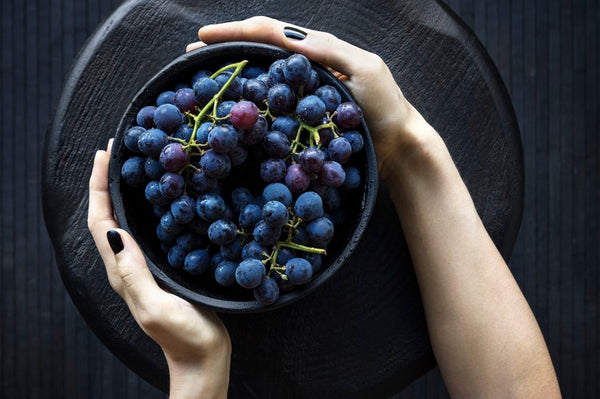
Natural Wine
You may have noticed that in both organic and biodynamic viticulture, there are few if any stipulations for what goes on in the winery. That's because they focus solely on viticulture and how grapes are grown. However, the concept of natural wine goes further, as it encompasses both viticulture and, importantly, how the grapes are then turned into wine. However, there is no regulation relating to natural wine and so it's self-styled, with producers differing in terms of their definition. The easiest, and most accurate way, to think about natural wine is to consider it as a 'minimal intervention' style of wine-making, with as little human impact on the wine-making process as possible; difficult considering that we're intrinsically involved in the process! However, the following are generally considered to be accepted across most self-defined, natural wine producers:
- Organic or biodynamic viticulture is a requirement, although certification isn't necessary.
- No additions (or subtractions) of sugar, acidity, yeasts or enzymes during the wine-making process
- Minimal So2 additions. There aren't any solid numbers on this, and this tends to be the point at which most producers differ, but 40mg/l is a commonly accepted ceiling.
- No fining and minimal filtration prior to bottling
London is home to some of Europe's most exciting natural wine bars. Read here for our top selection!
So, what are the pros and cons of Natural Wine?
Pros of Natural Wine
- Many of these wines are vibrant, colourful and often lower in alcohol. As a result, they've attracted a whole new generation of wine-drinkers who were put off by the rigid hierarchy and often high prices of classic wines.
- The popularity and fashionable style of natural wine has had an important knock-on effect in the conventional wine world, encouraging producers to be a little more daring, lowering alcohol levels across the board and setting a stage for more transparent, refreshing wines than in previous decades.
- Whilst we don't necessarily prefer natural wines to others, there are so many delicious, engaging examples that we suspect wouldn't have a platform were it not for the creation of the genre! The industry has never been so diverse, and natural wine is an integral part of this new energy.
Cons of Natural Wine
- Being so strictly defined, natural wine is unfortunately often associated with quite a militant approach to wine-making and, worse, wine-drinking. Whilst most natural wines are enjoyed broadly, a small minority have created unpleasant cliques that echo their counter-parts in the fine-wine scene.
- The significance of the narrative in natural wine means that many times, the quality of the story trumps the quality of the wine. Some of the most delicious wines in the world could be described as natural wines, and some of the very worst. As a general rule, it takes considerably more skill to produce delicious, age-worthy wines with the conditions imposed by natural wine producers.
- Natural wines are, by their nature, made in small productions and usually at relatively high prices. You're likely to find them in certain restaurants and specialist shops, but it does make the wines slightly inaccessible and unlikely to be tried by the average wine consumer.
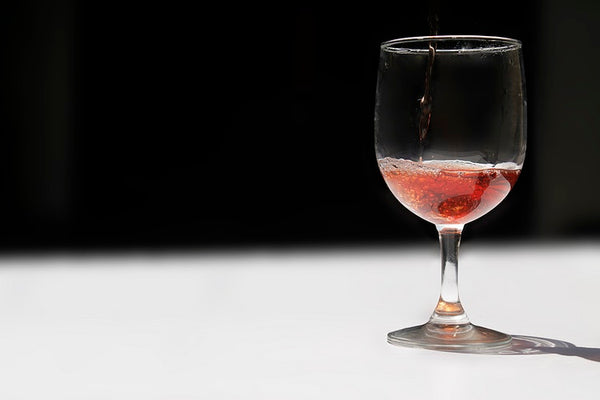
Conclusions
So, there you have it – the major differences between Organic, Biodynamic and Natural Wines. From our own perspective, there's no better or worse option, and we're delighted that all three exist. Whilst nailing your colours to a mast is tricky in the wine world, we will say that any sort of sustainable viticulture is a positive step forward, and we can say with some confidence that more and more producers will invest in organic or biodynamic viticulture in the future. Wine is a long term business and the health and vitality of a vineyard isn't something that can be quickly built or recovered, so taking care of it is of the utmost importance. Thanks for reading and we look forward to guiding you through a new element of the world of wine soon. Cheers!
For more on our specially designed wine luggage and more detailed information on how to travel with alcohol, check out the links below:






Deixar comentário
Este site é protegido por hCaptcha e a Política de privacidade e os Termos de serviço do hCaptcha se aplicam.